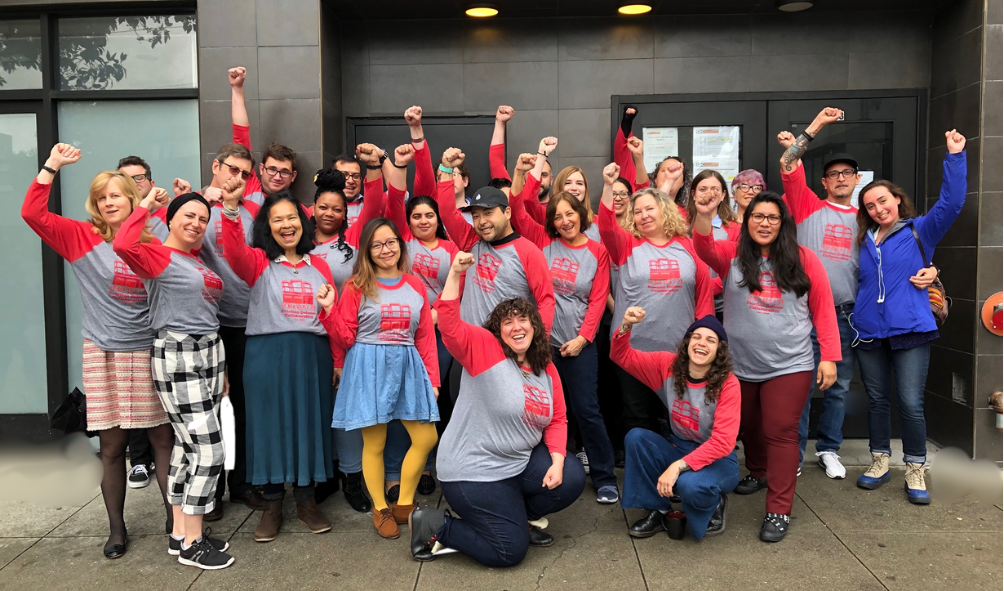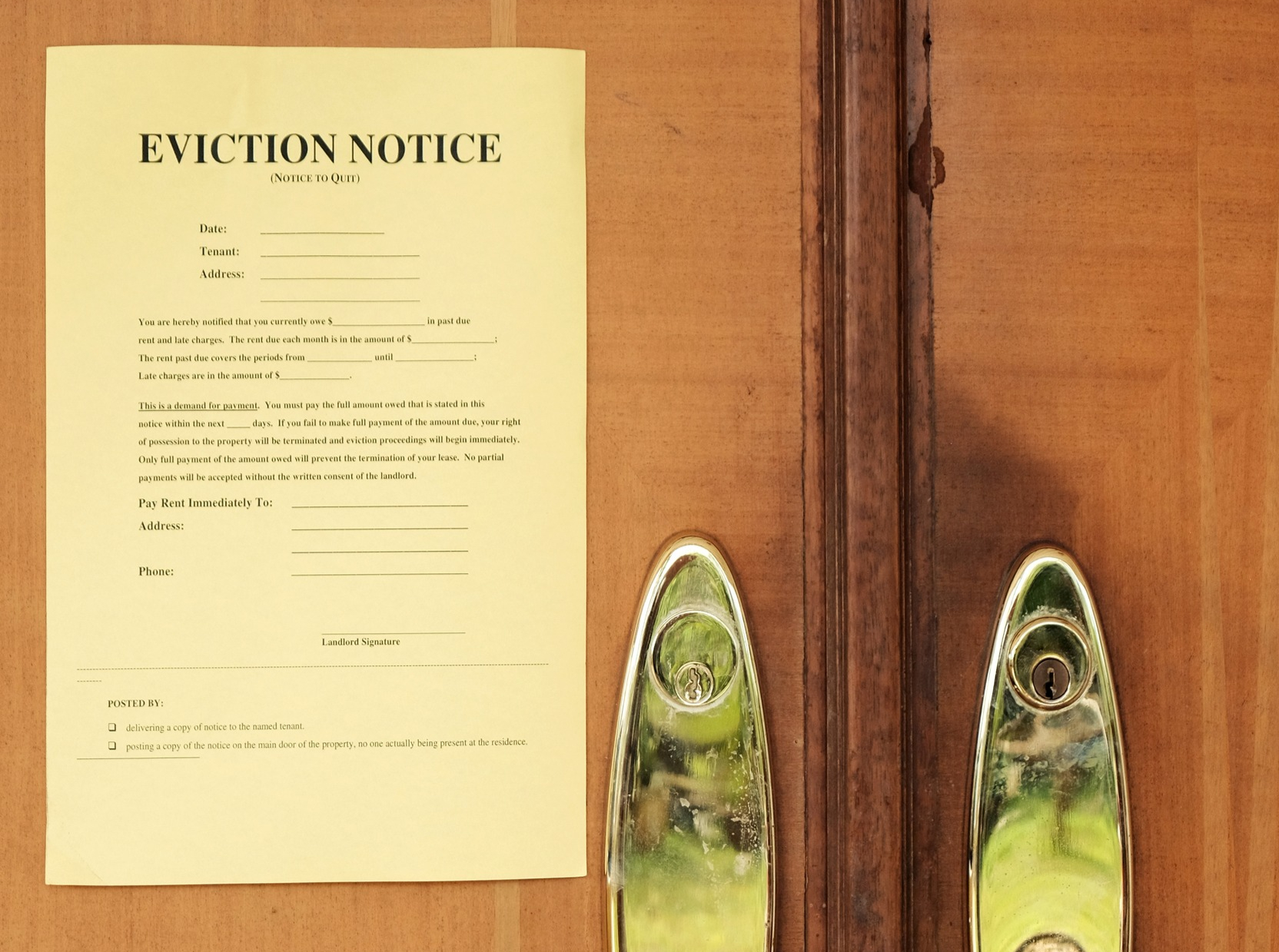Facing eviction—or even having it on your record—can feel overwhelming. This affects more than your housing. It can impact finances, mental health, and future stability. But here’s good news: You have options, and the more you understand your rights, the more power you have to move forward. But how long does an eviction stay on your record? This guide will explain eviction records in California, what you can do if one appears on your record, and how to protect yourself.
How Does Eviction Affect Long-Term?
If you’ve been evicted, one of the first questions you may have is: How long does an eviction stay on your record? How long will this follow me? In California, an eviction can remain on your public record for seven years. This includes court filings and judgments, which can reach tenant screening companies and landlords. However, an eviction will generally only appear on record if a judgment is entered within sixty days of the start of your case. Working with a legal services organization such as EDC early on in your case can prevent this from happening.
While the eviction does not appear directly on your credit report, any unpaid rent or court-ordered fees sent to collections will impact your credit score.
That means even if the eviction doesn’t appear on your credit history, it can still hurt your chances of securing future housing, especially if a landlord checks court records or uses a tenant screening service.
Can You Remove or Seal an Eviction Record in California?
In California, you can seal your eviction record, which can make a big difference when applying for future housing. Sealing a record means it will not appear on background checks or be accessible to landlords or screening companies.
You can request to seal your eviction if:
- The case was dismissed
- You won in court
- You settled with your landlord
- Your landlord didn’t follow proper legal procedures
If you’re in one of these situations, you can file a court motion to seal the records. In some cases, you may need to attend a hearing. This request to seal the record will only be necessary if your case went to judgment in the first sixty days or if it was filed in “unlimited jurisdiction.” Most evictions in California are filed in “limited jurisdiction.” These cases are automatically masked for the first sixty days, and permanently masked if no judgment is entered before those sixty days have run.
Tip: If negotiating a settlement, ask your landlord to agree in signed writing. This can protect the future of your tenancy.
Because some courts automatically seal dismissed cases, while others need more paperwork, a legal assistance organization like EDC can help you determine what applies to your situation and guide you through the process.
What You Can Do Today: Steps to Take
If you’re dealing with an eviction—or one is already on your record—here are steps you can take right now:
- Consult a Legal Assistance Organization: Many offer free help filing court motions and responding to notices.
- Request a Copy of Your Record: Use the California Courts website or a tenant screening agency to see what’s on your record.
- Check for Errors: If the eviction was dismissed or settled, but still appears, you may be able to get it sealed.
- Respond to Notices Immediately: Use the 10-day response window to your advantage—don’t wait until it’s too late. Seek the help of a legal assistance organization during this time; don’t wait!
- Negotiate with Your Landlord: If you’re facing eviction, ask your landlord if they’re open to a payment plan or settlement that includes sealing the record.
In San Francisco, you are entitled to free assistance under the Tenant Right to Counsel program. Contact EDC to ensure you respond to court papers within the 10-day window and before committing to any final settlement with your landlord.
Your Rights as a Tenant: Preventing Eviction Before It Happens
Preventing eviction is always better than dealing with the aftermath. Fortunately, California has some of the strongest tenant protections in the country. Here’s what you should know:
Just Cause Is Required
Under the California Tenant Protection Act (AB 1482), Just Cause Eviction Law, and San Francisco’s stronger San Francisco Rent Arbitration and Stabilization Ordinance, landlords must provide a valid reason to evict tenants. These reasons include:
- Nonpayment of rent.
- Significant lease violations.
- Criminal activity on the premises.
- No-fault reasons such as owner-move-in or to demolish the unit (for these, relocation payment must be provided)
They cannot evict you without cause, or simply because they want to raise the rent or move someone else in. Knowing your rights is a big first step when preventing eviction.
You Have More Time to Respond
As of 2025, California law gives tenants 10 days (up from 5) to respond to an eviction notice. This change gives you more time to:
- Seek legal assistance.
- Pay back rent.
- Work out a settlement with your landlord.
Illegal Evictions Are Against the Law
Landlords cannot remove you from your home without a court order. It is illegal for them to:
- Change your locks.
- Shut off your utilities.
- Remove your belongings.
- Harass or threaten you.
If any of these actions occur, you may have the right to sue the landlord or file a complaint. Always document the incident and contact legal support as soon as possible.
Tools and Resources for Tenants in California
You’re not alone if you’re trying to prevent or clean up your eviction record in California. There are trusted organizations and resources available to help:
California Courts Self-Help Guide
Learn how to respond to eviction notices and request court dismissals.
California Rural Legal Assistance
Legal support for tenants in rural and underserved communities.
Disability Rights California
Assistance for individuals with disabilities facing eviction.
Eviction Defense Collaborative
Workshops, legal aid, and tenant resources for residents in San Francisco.
These resources can help you fight an eviction, seal your record, or better understand your renter rights.
What Landlords See: Evictions and Tenant Screening
When you apply for housing, landlords often use third-party services to check your rental history.
These reports can include:
- Eviction court filings
- Judgments in favor of landlords
- Rental payment history
- Criminal background checks
Even if you weren’t officially evicted, a landlord might still see that an eviction lawsuit was filed, if the case was not masked. That can raise questions, even if you settled or never went to court.
Therefore, it is necessary to check your record, correct errors, and seal your case, if possible. Cleaning up your eviction record can improve your chances of being approved for future housing and help you move forward more confidently.
Frequently Asked Questions About Eviction Records in California
Many renters aren’t sure how eviction records work—or how to fix them. Here are the answers to some of the most common questions to help you better understand your rights, options, and what you can do next.
How long does an eviction stay on your record in California?
Up to seven years. Even if you weren’t formally removed from your home, a filed eviction case can appear in tenant screening reports unless the court seals it. Most evictions in California are automatically sealed, unless they were filed in “unlimited jurisdiction” or went to judgment within sixty days of the lawsuit being filed.
Does an eviction show up on your credit report?
Not directly. However, unpaid rent sent to collectors can affect your credit score, which landlords may also check when reviewing rental applications.
Can I remove or seal an eviction if I lost my case?
Usually not. However, you may still have a chance if you settle afterward or your landlord breaks legal procedures. It will remain sealed if you lose more than sixty days after the case started. It’s worth speaking with a legal aid group to explore your options.
Will all landlords see my eviction record?
Most use tenant screening services, which include public court records. Even a dismissed case might still appear unless it’s sealed.
Can I still rent if I have an eviction on my record?
Many tenants get housing, especially after sealing their records or explaining the situation. Small landlords can be more flexible if you provide strong references or show proof of stability.
Where can I get help with sealing my eviction record?
Organizations such as the Justice and Diversity Center, California Courts Self-Help Guide, or local legal aid groups can often help you file a motion or prepare the proper paperwork, often for free.
Final Thoughts
How long does an eviction stay on your record, and how does it affect you? In California, an eviction can follow you for years, but it does not define your future. With the right information, support, and legal tools, you can regain control of your housing journey.
Whether you are facing eviction right now or trying to move forward from one in the past, you have options. By knowing your rights, taking action early, and getting help from reliable organizations, you can protect your record, secure stable housing, and rebuild your peace.
EDC and other tenant support organizations are here for you—with free legal help, no judgment, and real solutions. You deserve to feel safe and supported in your home.
Need Help? Contact Us
We provide free legal help and rental assistance to tenants in San Francisco. Contact us at:
- Address: 976 Mission St., San Francisco, CA 94103
- Drop-In Hours: Monday, Tuesday, Wednesday, Friday 10:00 AM – 11:30 AM & 1:00 PM – 2:30 PM
- Legal Help: (415) 659-9184 – legal@evictiondefense.org
- Rental Assistance: edcradco@evictiondefense.org
Don’t wait until it’s too late—reach out today for support, guidance, and someone to listen to you.




